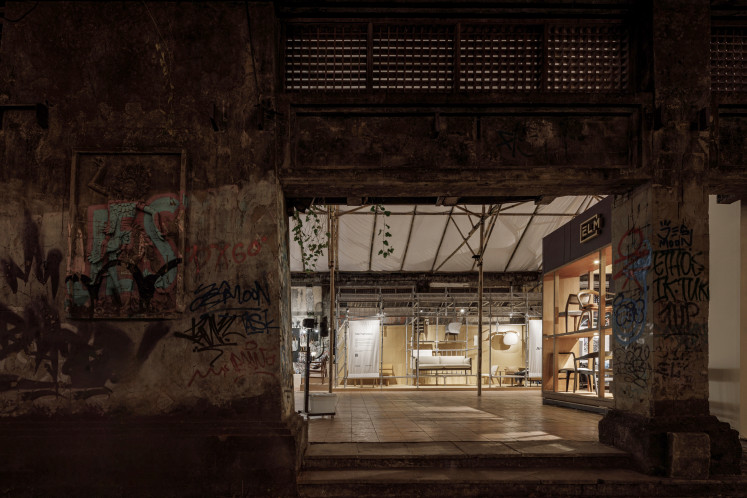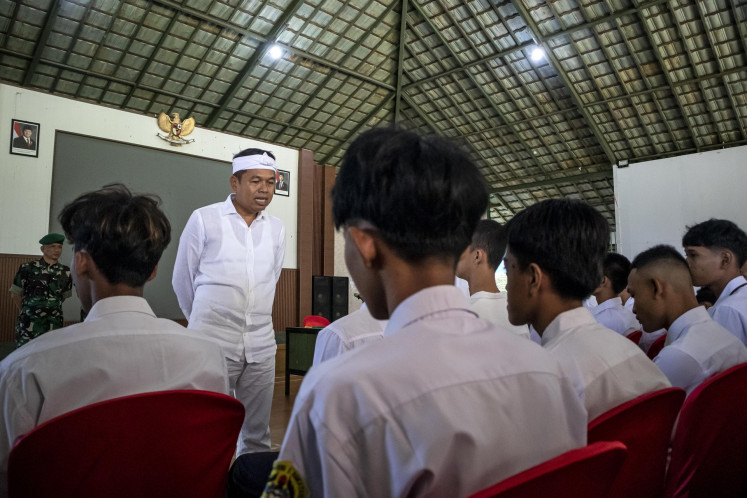Mandok Hata: Batak New Year's Eve ritual, a blessing for some and burden for others
Most Batak families pass the new year by holding a reflection ritual called Mandok Hata. Some welcome it, but others feel enormous stress
Change text size
Gift Premium Articles
to Anyone
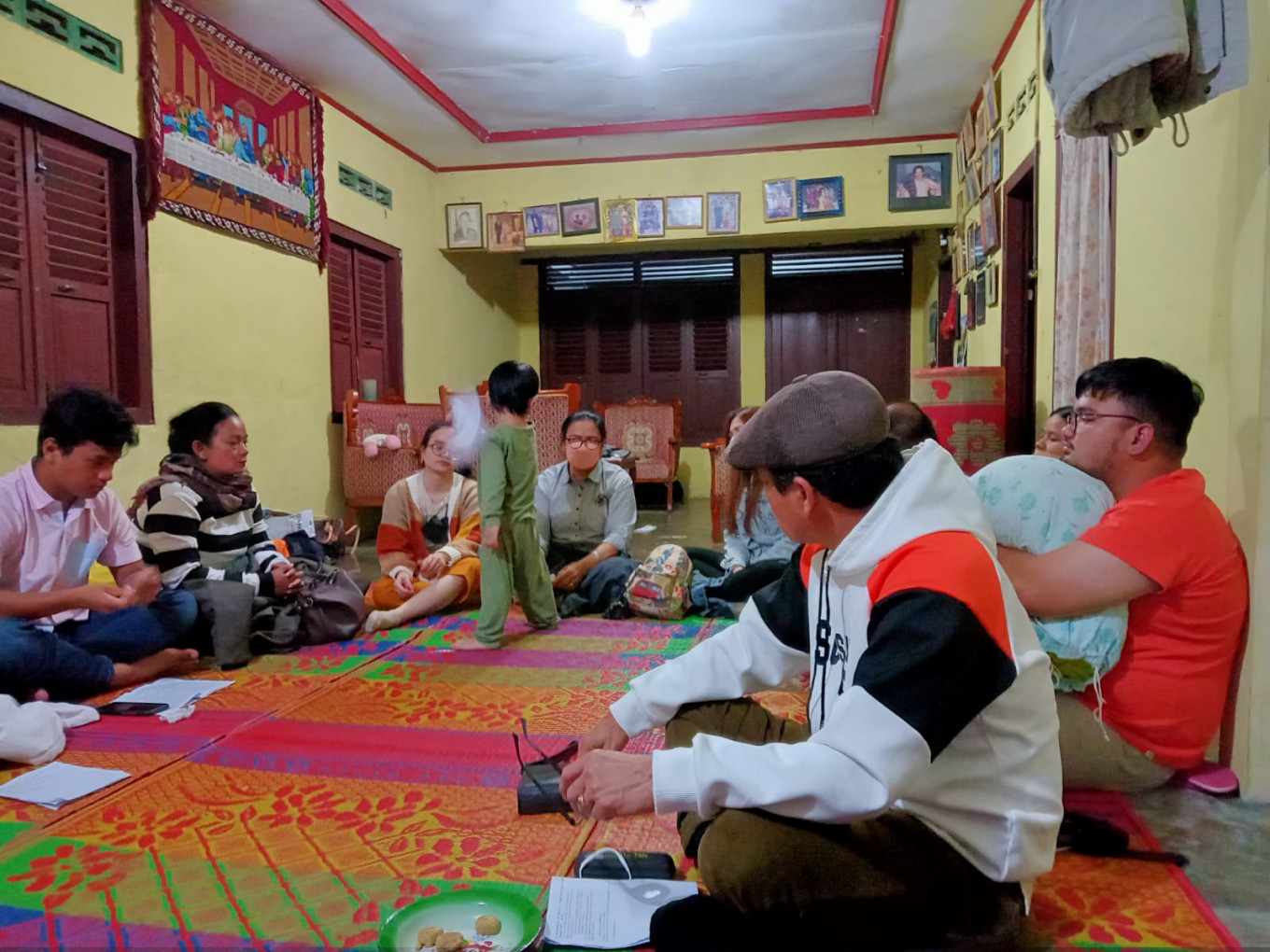 Key aspects: Robert Sibarani (wearing hat), a professor of anthropological linguistics, says there are three main elements that must be expressed during the ritual: prayer, hope and apology. (Courtesy of Robert Sibarani) (Personal collection/Courtesy of Robert Sibarani)
Key aspects: Robert Sibarani (wearing hat), a professor of anthropological linguistics, says there are three main elements that must be expressed during the ritual: prayer, hope and apology. (Courtesy of Robert Sibarani) (Personal collection/Courtesy of Robert Sibarani)
M
ost Batak families welcome the new year by holding a reflection ritual called Mandok Hata. Some welcome it, but others feel enormous stress
Last New Year's Eve, a debate about the Batak routine year-end ritual, Mandok Hata, went viral on Twitter. The initial tweet presented a view by the original poster who conveyed how stressful it was for them every time the new year came around, knowing that they had to face potential judgment from family members regarding the things they have (or have not) achieved in the past year. The Jakarta Post is not publishing the original tweet or its user’s handle, to honor their request to not be interviewed and publicized, due to the overwhelming negative replies they have received for their post on the popular social media platform.
The literal meaning of Mandok Hata, “conveying words'', points to it being a time for a Batak family - nuclear or extended - to gather as one during New Year’s Eve (although it is sometimes also held at other large family gatherings, such as birthdays). The process itself takes place after a short prayer session that happens right after the clock strikes midnight.
There, each family member expresses their hope for the coming year and follows it with an apologetic assessment for all the mistakes they have made during the past year and how they hope to do better. The youngest family member starts the process, before the whole room takes their turn.
The ritual is meant, and often does work, as a reflective assessment process that relies on self-honesty and the blunt opinions of family members. As with every cultural ritual, every family is different and the effectiveness of Mandok Hata is different in each household. But for those, such as the Twitter user above and the respondents who heartily agreed with them, it often turns into a process of judgment where family members - often older ones - let their pent-up grudges really loose.
“The younger family members’ admission of mistakes is not only criticized in-and-of-itself but opens the door to unrelated issues seen as shortcomings or even failures, by parents, uncles and grandparents,” says Andre, a 30-something father of two and educational professional in Jakarta, who partakes in Mandok Hata each year at his parents’ house. Andre, who preferred not to divulge his full name, says that drama can occur when older family members who have issues with each other use each other’s children as proxies for their personal conflicts and resentment.
“It is often an opportunity [for the elders] to question your plans for school, marriages, work and those kinds of things,” says Charles, a 41-year old Batak father of one and doctor who lives in Surabaya, East Java, (Charles did not want to use his full name).
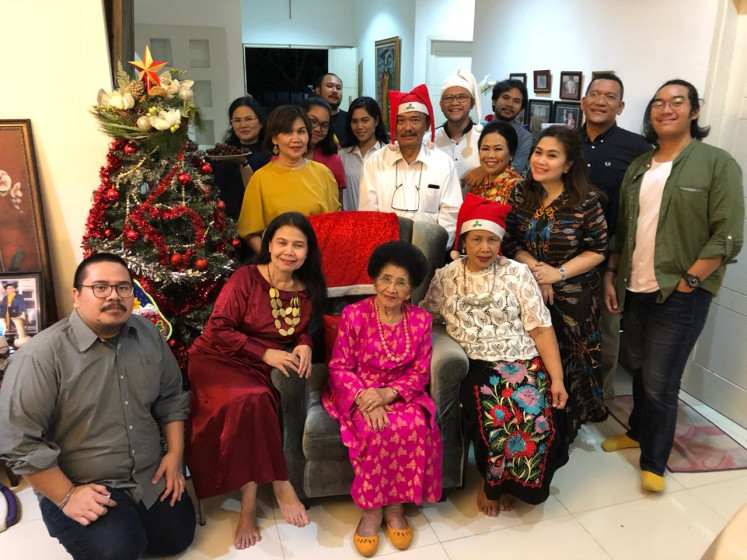
Though both Andre and Charles are not necessarily young, they agree that for younger family members - teenagers and those in their twenties - the process can be emotionally taxing (and physically, as it can run into the early hours of the morning).
The original tweet’s replies saw thousands of Batak Twitter users who partook yearly in the tradition, in polarizing stances. Some perceived the tradition as a glue that holds tradition and family together with a deep level of love and connection, many giving examples of their elders also honestly expressing their own faults and setbacks. Others, mostly younger Bataks, saw it as an excruciating and unfair custom they must partake in annually. Although every family member gets to apologize, some consider it something that younger Bataks are expected to do, while elders often focus mostly only on their hopes for the coming year.
Sleepy advice
David Aritonang has never been enthusiastic about New Year's Eve, knowing he has to attend the ceremony every year.
"First, it's just like we have to hear advice, late at night when we all are feeling sleepy," the 29-year-old media worker said.
David has spent every New Year's Eve in his entire life with his family, saying no to invitations to gather with friends.
David cannot reject his father's request to attend the ritual. He is aware of his father's status as a firstborn child, which in most Batak families means he is the central figure within the family, especially after David's grandfather and grandmothers passed away.
David is also the first grandson within his extended family, making him the designated role model for his cousins.
But, David has never been comfortable whenever his family members begin questioning his future plans.
"When I was in college, they asked me when I would graduate. It felt like a trial to me," David said. "After I had graduated, I was asked about my job. After I got my job, they asked me about marriage. Maybe they care about me, but I think that all was unnecessary," he added.
Like David, Artha Pandjaitan also has less interest in attending Mandok Hata. The 26-year-old employee has always felt uncomfortable attending Mandok Hata in her hometown of Samosir Island in North Sumatra.
She felt “exposed” before other family members. "I felt burdened," Artha said, adding that the emotion that comes as the day approaches often feels overwhelming.
Last New Year's Eve, Artha had a relieving year. She did not have to attend Mandok Hata, as she was staying in Jakarta. "Though I felt sad because we could not meet each other, I felt relieved because I did not have to attend Mandok Hata," she added.
Heart-to-heart
Margith Damanik, a 27-year-old sportswriter, said that she always felt like it was an “evaluation” process.
Margith likens it to a “forum for apologizing.”
"[I think] we can say sorry right after we make a mistake. So why should we keep it until the end of the year?" said Margith recalling her memories.
But like those who regard the tradition in a positive light, Margith admits that the ritual has given her some life lessons. A concrete example is in understanding why her parents are often seemingly anxious but also indifferent about certain things.
"My parents admitted to me their concern about my sister, who took a pretty long time to graduate," Margith said. "All this time, they had never shown their concern.”
Margith became more appreciative of the ritual. "It feels like a heart-to-heart," said Margith.
Patric Batubara perceives Mandok Hata as one of his essential rituals for each year. The 28-year-old civil servant sees the ritual as a good time for sharing and apologizing to his parents and younger brother and a time to reflect and to be grateful.
Through Mandok Hata, he said, "We know how far and where God has brought me," Patric said. "There are small checkpoints to be grateful for," he added.
Gratitude
Robert Sibarani, professor of anthropological linguistics from the University of North Sumatra (USU), said that Mandok Hata had a good goal in mind. It is a tradition where each family member gets to express three things: gratitude, prayers and apology.
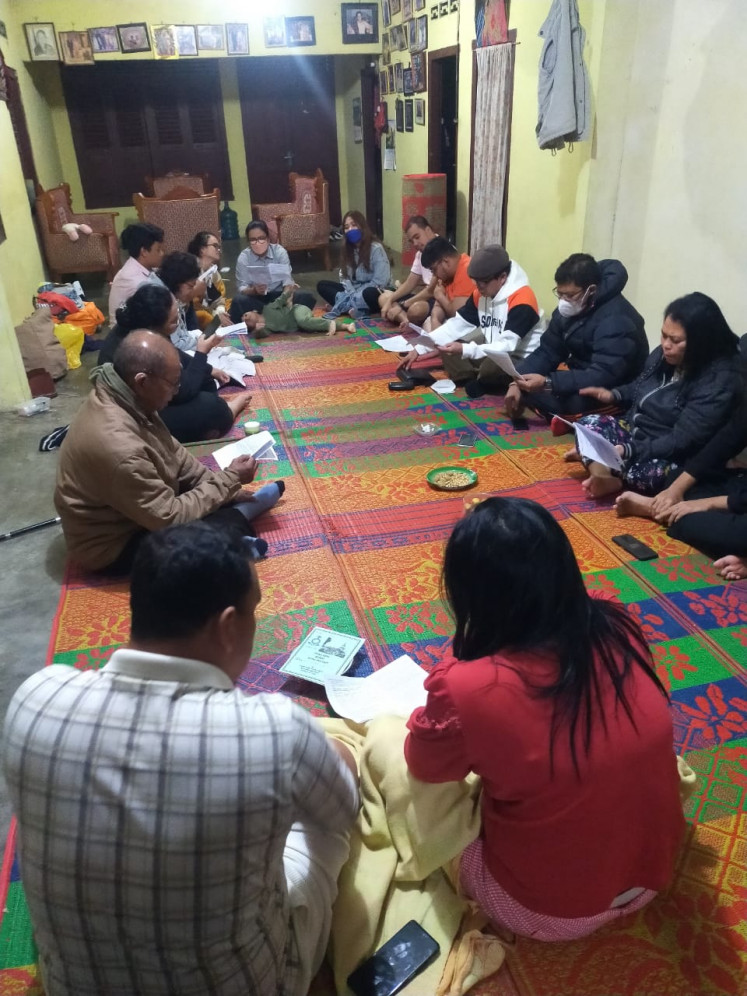
Despite its good values, Robert said that a wrong impression or misunderstanding among family members may be unavoidable. It depends on the leadership abilities of the family leader or uluan, whether it is the parents or one of the firstborn children, and how they lead the forum.
Robert believes a good uluan can prevent any misunderstanding from occurring.
The debate about the ritual will likely continue next New Year's Eve. Those who appreciate the tradition will continue to follow it, while others who feel burdened may stop practicing it.
For David, it is clear that he will participate, if only out of obligation.
"I prefer gatherings without Mandok Hata," said David. "But, as long as my father lives, it is compulsory to attend the ritual," he added.




